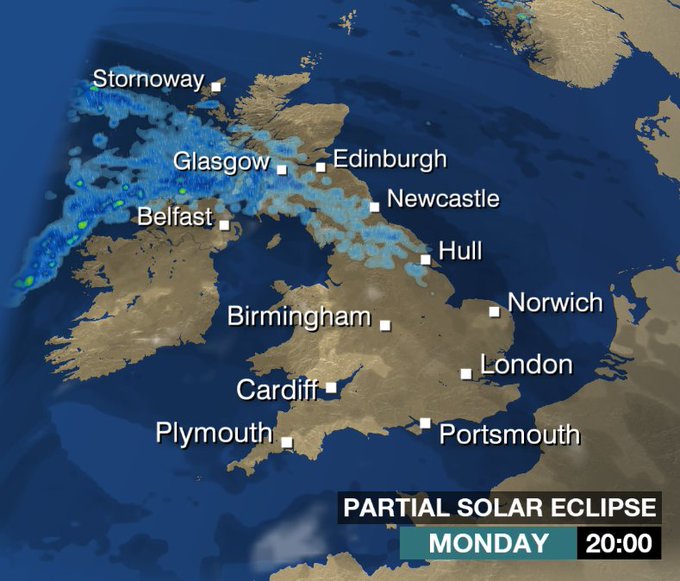On Monday, people in the United States will be able to see the first total solar eclipse from coast-to-coast in the country since 1918. It’s expected to be the most viewed eclipse of all time, with millions of people flocking toward the path of the eclipse to catch a view of the rare astronomical event.
So while U.S. citizens will be treated to quite a show, are those in the United Kingdom able to catch a glimpse?
The answer is yes, however it won’t be nearly as visible as in the U.S. and should be largely underwhelming, according to The Metro.
In the U.S., people will be able to see the Moon fully cover the Sun for almost 2 minutes in some places. But in the U.K., the Moon will cover just 4 percent of the Sun, a far cry from the view Americans will get.
The event is expected to be seen across the U.K. around sunset, between 7:40 p.m. and 8:28 p.m. GMT.
However, weather will play an impact in the eclipse viewing, and gloomy skies may make the eclipse hard to notice.
“On British shores, only south-west England and South Wales are expected to have any chance of witnessing the moment through a break in the cloud,” The Telegraph wrote.
But even if it was perfect weather, it wouldn’t be a spectacular view as is.
“From a meteorological point of view it is not looking very good because of the cloud — most people won’t be able to see a thing,” Met Office forecaster Martin Bowles said to the news outlet. “There will be some breaks in the cloud in the south-west of the country — South Wales and south-west England — there will be enough breaks that people who are looking specifically might be able to see a little chip out of the corner of the sun.
“Anywhere in the east, including London, won’t see anything because it will just be clouded over; also Scotland and Northern Ireland.”
If you’re looking to catch a full glimpse of the eclipse in the U.S., click here for a live stream.
You should be advised to not, under any circumstances, look directly at the sun. Its glowing rays could cause severe eye damage. To do so, you’ll need a pair of solar eclipse glasses.

